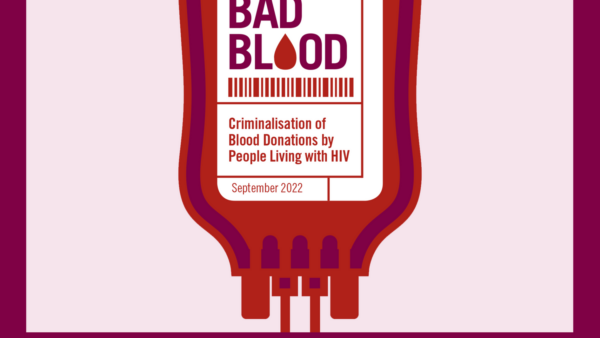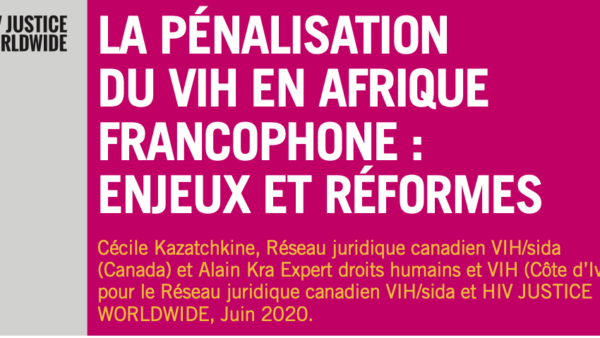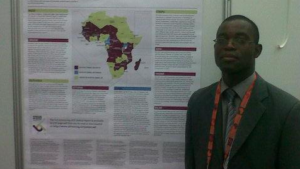Overview
Togo adopted its first HIV-specific law in 2005, Act No. 2005-012 of 14 December 2005 on the protection of persons with regard to HIV/AIDS, based on the N’djamena Model Law. The N’Djamena Model Law was intended to protect persons with HIV from discrimination, but also makes it a crime to ‘intentionally’ transmit or expose another person to HIV. This law is poorly worded, overly broad and vague (for further analysis see Criminalizing HIV transmission or exposure: the context of francophone West and Central Africa).
The law was subsequently amended in 2010, and a new provision criminalising ‘wilful’ transmission was introduced. Article 61 makes it an offence to ‘knowingly’ transmit HIV, to use objects they know to be ‘contaminated by HIV’ on another, ‘deliberately’ inoculate ‘HIV-infected substances’ into another, or making a blood donation or donating tissue or organs with knowledge of their HIV status (see our report, Bad Blood, for a global analysis of the criminalisation of blood donations).
However, Article 61 also adds defences of taking measures to ‘significantly reduce the risk of transmission’ including condom use, and disclosing HIV status and obtaining free and informed constant prior to the act.
Although we are aware of a number of reports to the police, none are believed have led to a prosecution.
Laws
Act No. 2010-018, amending Act No. 2005-012 of 14 December 2005 on the protection of persons with regard to HIV/AIDS
Article 61 – A person is guilty of an act of wilful transmission of HIV if he or she:
– knowing that he/she is infected, will have knowingly transmitted HIV to another person;
– knowing that the objects she/he uses are contaminated by HIV, will have used said objects on physical persons;
– has deliberately inoculated HIV-infected substances into another person;
– knowing that the blood offered for transfusion, tissue or organ donated for transplantation is infected with HIV, will have transfused blood or transplanted tissue or organ onto a person.
A person living with HIV will not be prosecuted for an act of wilful transmission under this or any other law if:
– he/she has taken measures to significantly reduce the risk of transmission, including through condom use;
– he/she has informed his/her sexual partner of his/her HIV status and has obtained free and informed consent before the act involving a real risk of transmission, notwithstanding the general principles of criminal law.
Further resources
Nations throughout the world are increasingly criminalizing HIV transmission or exposure. This trend, already very familiar to high-income countries such as Canada, the United States of America and some European nations, takes on a special meaning in Africa, where several national HIV/AIDS laws make HIV transmission or exposure a crime.
Acknowledgements
Report presenting the results of a survey on HIV criminalization in African countries where French is spoken, conducted from May to September 2017.
Authors: Stéphanie Claivaz-Loranger & Cécile Kazatchkine for the Canadian HIV Legal Network and HIV JUSTICE WORLDWIDE
HIV Justice Network's Positive Destinations
Visit the Togo page on Positive Destinations for information on regulations that restrict entry, stay, and residency based on HIV-positive status, as well as access to HIV treatment for non-nationals.


